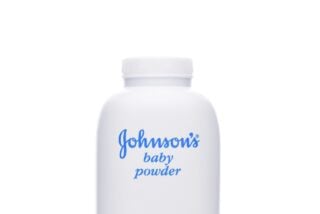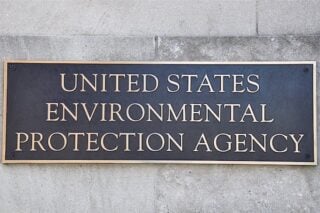
In July 2018, a St. Louis jury awarded nearly $4.7 billion to the plaintiffs in a case against Johnson & Johnson. The case centered around claims that asbestos in the company’s talcum powder products caused the plaintiffs’ ovarian cancer.
In June 2020, an appeals court reduced the award to $2.1 billion. Despite this award reduction, the company continued to pursue a full verdict appeal. On June 1, 2021, the Supreme Court rejected Johnson & Johnson’s appeal.
Justices Reject Johnson & Johnson’s Appeal
The Supreme Court announced it will not hear an appeal filed by Johnson & Johnson. The case regarded a $2 billion verdict surrounding the company’s talc-based products. The company argued the original case was presented unfairly. Johnson & Johnson asked that the case be thrown out altogether.
According to the order, Justice Samuel Alito and Brett Kavanaugh recused themselves from the case. No justices wrote dissents.
Johnson & Johnson responded to the Supreme Court’s decision. The company claimed the decision left important legal questions unanswered.
History of $2B Talc Verdict
Johnson & Johnson has been fighting this verdict since 2018. The original asbestos lawsuit was filed by 22 women and their families. These women claim Johnson & Johnson’s talc-based products contained asbestos. Thus, the plaintiffs’ frequent use of the products led to asbestos exposure and subsequent ovarian cancer.
The case was filed in Missouri, though many of the plaintiffs resided in other states. After a six-week trial, a St. Louis jury initially awarded nearly $4.7 billion to the 22 plaintiffs. Of the total awarded compensation, $4.14 billion were punitive damages. Punitive damages are monetary awards meant to financially punish the defendant for wrongdoing.
Johnson & Johnson Files Appeal of $4.7B Award
In the company’s first attempt to overturn the initial verdict, St. Louis Circuit Judge Rex Burlison denied Johnson & Johnson’s request. Judge Burlison claimed Johnson & Johnson committed “particularly reprehensible conduct.” He reasoned the company knew its products were contaminated with asbestos and misrepresented the safety of its products.
Following Burlison’s rejection, Johnson & Johnson took the case to the Missouri Court of Appeals.
The appeals court did not throw out the case against Johnson & Johnson. In fact, it ruled the company knowingly sold a product capable of causing cancer.
“We find there was significant reprehensibility in defendants’ conduct. The harm suffered by plaintiffs was physical, not just economic.”
– Court Ruling, Eastern District Missouri Court of Appeals
Johnson & Johnson denies all claims surrounding asbestos in its talcum powder products.
However, the Eastern District Missouri Court of Appeals did reduce the verdict amount. The court reduced the verdict from nearly $4.7 billion to $2.1 billion. The court reasoned several of the plaintiffs did not live in Missouri and should not be part of the lawsuit.
Johnson & Johnson used this same argument in their appeal to the Supreme Court. The company asked for an appeal based on unfair trial circumstances given that the 22 plaintiffs came from 12 different states.
Talcum Powder Lawsuits Against Johnson & Johnson
Johnson & Johnson is currently facing thousands of lawsuits filed by individuals who claim their cancer was caused by asbestos in the company’s talc-based products. The company has acknowledged more than 20,000 lawsuits filed over its talcum powder products.
Talc is a mineral that is structurally similar to asbestos and often found in the same mines as asbestos. Asbestos exposure is directly linked to certain cancers and other health conditions such as asbestosis.
Apart from claims associated with ovarian cancer, Johnson & Johnson is also facing talcum powder claims related to mesothelioma.
Mesothelioma is a cancer caused by asbestos exposure. A study published in March 2020 linked asbestos-contaminated talcum powder to 75 cases of mesothelioma.
Johnson & Johnson continues to deny its products contain asbestos. However, in October 2019, the company recalled 33,000 bottles of asbestos-contaminated baby powder.
In May 2020, Johnson & Johnson ended sales of its talc-based baby powder in the United States and Canada. According to the company, product sales had declined due to misinformation and heavy litigation advertising.
The company continues to sell its talc-based products elsewhere in the world, despite calls for a global ban.




